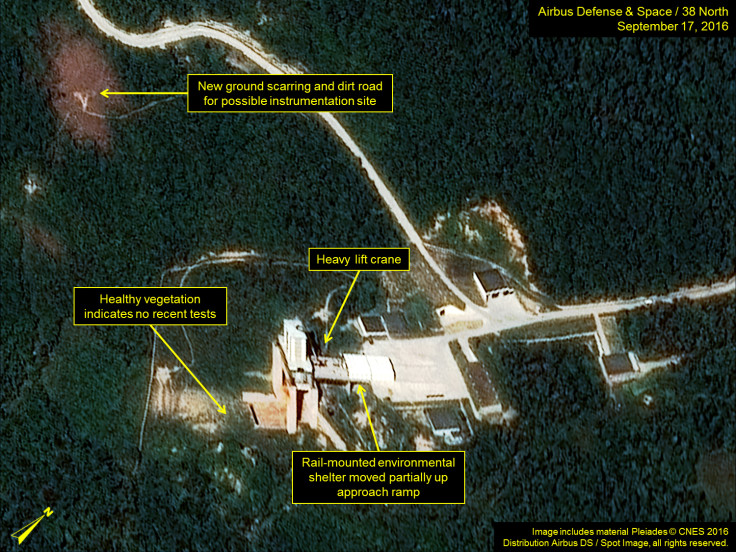North Korea readying for another nuclear test? Satellite images show hectic activity at Punggye-ri
Over the weekend, Radio Pyongyang broadcast secret coded messages hinting at a possible impending weapons test.

North Korea appears to be pressing ahead with its nuclear programme. Satellite images recently detected hectic activity at the North Korean nuclear test site, Punggye-ri.
Experts say that after North Korea's last nuclear test, minor tremors were detected near Mt Mantap, located close to the nuclear site. However, Pyongyang is now engaged in additional tunnel work at the site.
According to experts at 38North, a US-based think tank, the fresh activities were detected at the West Portal of the site – indicating that the site may be undergoing an expansion. Meanwhile, the North Portal, where the previous five tests were conducted, appears to have been temporarily abandoned.
"At the West Portal, there has been a consistently high level of activity since North Korea's last nuclear test. This includes a routine presence of vehicles and personnel around the portal, movement of mining carts from the portal to the adjacent spoil pile and signs of fresh spoil being dumped onto the pile," 38North experts said in a blog. "These activities suggest that tunnel excavation is underway at the West Portal, as the North Koreans expand the site's potential for future nuclear testing."
Ryan Barenklau, CEO and founder of Strategic Sentinel, a Washington-based nonpartisan geostrategic consulting agency, told IBTimes UK, "The tunneling is occurring at the West Portal and activity near that area has been relatively high for the last month. They are most likely digging deeper and expanding the complex underneath so they can continue their normal operations."
"The complex is probably unstable seeing how many tremors have been recording, forcing new tunnels to be created. The West Portal area will probably be where the next nuclear tests will be conducted if there are anymore to come."
Breanklau added that it might be a while before North Korea conducts its next nuclear test. "The last two tests were conducted one year apart. These mining operations take time and there is no telling just how badly the mountain has been damaged due to the previous tests."
Radio Pyongyang on 6400kHz sends out their weekend coded messages.
— Strategic Sentinel (@StratSentinel) December 9, 2017
Over the weekend, Strategic Sentinel tweeted that Pyongyang Radio had broadcast secret coded messages over its 6400kHz radio station. Such transmissions have previously been observed preceding major weapons tests by North Korea.
However, it remains unclear if the continuing activities at Punggye-ri and the sudden influx of coded messages being transmitted indicate that North Korea might be ready to conduct yet another major weapons test.
"Pyongyang likes to send out coded messages on the weekend, especially Saturday morning US time, and does this regularly. December 9th was one of those weekend messages," Barenklau told IBTimes UK.
"Rarely, Pyongyang will start to send them out at random times multiple times per week. That is usually indicative of a large provocation or diplomatic move, but not always. Again, we really don't know for sure what they are doing with those messages. We don't necessarily care to try and understand the messages themselves. We look for how often and when."
(This article has been updated to include the comments of Strategic Sentinel CEO and founder Ryan Barenklau.)




















